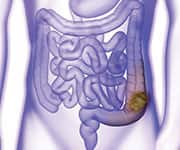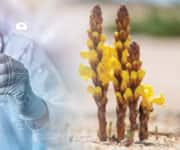Life Extension Magazine®
Traditional Chinese-medicine practitioners have long used the herb Cistanche to support immunity, brain function, and more.1,2
The demand is now growing as scientists identify Cistanche’s multiple anti-aging effects.3,4
Cistanche has been shown, in preclinical research, to activate immune functions and help reverse certain aspects of immune senescence.3,5,6
This research provides insight on how this plant may protect against age-related health concerns, including increased vulnerability to infections, malignancies, and neuroinflammation.3,4
Aging and Immune Function

As we age, our organs and tissues are prone to dysfunction. So is our immune system.
This immune senescence puts us at greater risk of infections and cancer. It also reduces the effectiveness of vaccines.7
Some of the deleterious immune changes that accompany aging include:7
- A decrease in available naïve (not yet activated) T cells, including CD8+ T cells needed to kill viral-infected cells and tumor cells,
- A decrease in B cells, which make antibodies to fight specific pathogens,
- A decrease in the effectiveness of memory T cells that help keep latent (dormant) viruses in check, such as the virus that causes shingles,
- An increase in pro-inflammatory proteins, including interleukin-6 (IL-6), which is linked to impaired immune function, and
- An increase in persistent, low-grade inflammation or inflammaging.
Scientists have found that many natural plant compounds, including those in Cistanche, may help slow the rate of immune senescence and optimize our immune function.
Bolstering Immune Defenses

Researchers have performed several cell culture and animal studies to identify how Cistanche extract can support the aging immune system.
These studies suggest Cistanche could help:
- Increase amounts of natural killer cells, which help defend against tumors and a number of pathogens,3
- Promote the production of naïve T cells and B cells, also needed to help fight pathogens,3,5,6
- Support proper immune system function through its anti-inflammatory activities,5
- Increase the activity of dendritic cells, which help activate naïve T cells,8 and
- Decrease harmful proinflammatory cytokine interleukin-6 (IL-6).3
Among the most beneficial compounds in Cistanche are polysaccharides and a class of polyphenols called phenylethanoid glycosides, which include echinacoside.5
Echinacoside is also a key component of Echinacea, an herb known for supporting the immune system. Cistanche tubulosa has a high content of echinacoside.9
A Cistanche extract was shown in an animal model to increase the potency of an influenza vaccine.
Substances that enhance the body’s reaction to an immune response are commonly added to vaccines to improve their effectiveness.
When Cistanche extract was added to an influenza vaccine, it elicited more rapid antibody production against the flu antigens.10
Taming Neuroinflammation
Cistanche’s anti-inflammatory activity makes it a good candidate for protecting against the damaging effects of neuroinflammation.11
In a placebo-controlled pilot study, men and women with moderate Alzheimer’s disease took 300 mg of Cistanche three times daily for nearly a year.12
Taking Cistanche resulted in significantly lower levels of certain inflammatory factors in the fluid surrounding the subjects’ brain and spinal cord, compared to the untreated group.
Untreated subjects also had hippocampus shrinkage of 4.2%, while the Cistanche group had no change in the volume of their hippocampus. The hippocampus plays a key role in cognition, memory, and learning.
Consistent with these findings, the Cistanche group performed significantly better on cognitive tests at the end of the study.12
In addition, a rat model of Alzheimer’s showed that echinacoside and other bioactive components of Cistanche can pass through the blood-brain barrier to protect brain cells.2
Anticancer Activity

Preclinical research suggests Cistanche may help fight cancer in cells of the esophagus, breast, colon, and liver.13-16
For example, Cistanche has been found to trigger the death of colorectal cancer cells.5
One laboratory study found that Cistanche inhibited the growth of colon cancer cells by 60% within just 72 hours of treatment. This included cancerous cells that had metastasized.15
In mouse studies, Cistanche stimulated the immune system, increasing levels of cancer-fighting CD8+ T cells.
Cistanche inhibited the growth of liver cancer cells and greatly improved the rodents’ survival rate.16,17
Longevity Promotion
Scientists use species with short lifespans, including fruit flies and roundworms, to quickly test the lifespan effects of compounds.
Though these creatures are tiny, their organ systems and cellular processes have many similarities to our own.18
When adult fruit flies were given Cistanche for 20 days, it extended their average lifespan by as much as 18.9%.19
Another study used small roundworms to test the longevity effects of the echinacoside found in Cistanche. This compound increased the average lifespan of roundworms by 13.64%, compared to an untreated group.20
These findings are not surprising considering immune senescence is a major cause of death in aging people.
Stimulating Growth Hormone
Once we hit puberty, our growth hormone levels drop about 14% per decade. Declining health and longevity tend to accompany this hormonal downturn.21
Cistanche may provide a natural way to promote youthful growth hormone levels.
When rat pituitary cells were exposed to compounds from Cistanche, they stimulated the secretion of growth hormone. Echinacoside was especially effective.22
Other Benefits of Cistanche

Research suggests that Cistanche has health benefits beyond promoting longevity mechanisms and improved measures of immune function.
Cell culture studies show that echinacoside stimulates bone-building osteoblast cells to regenerate bone. Postmenopausal rat models of osteoporosis have found that Cistanche reverses bone loss and improves bone density.5,6,23
Preclinical research suggests Cistanche could help improve insulin resistance, promote healthy blood sugar levels, prevent depression, and lower cholesterol.6,24
Cistanche may also help combat physical fatigue, support reproductive health, alleviate constipation, and reduce the severity of cataracts.5,6,25,26
This research adds to the growing body of evidence that oral intake of Cistanche promotes healthier aging.
Summary

To live a long, healthy life requires healthy immunity.
Immune function and lifespan are closely linked.
Immune system dysfunction, or immune senescence, brings increased risks of infection, cancer, and chronic inflammatory conditions.
Extracts of the herb Cistanche contain bioactive compounds that support immune function.
Preclinical studies suggest Cistanche could help bolster immune defenses, reduce cancer risk, and increase lifespan.
Human research shows that Cistanche can also help reduce neuroinflammation and protect brain function.
If you have any questions on the scientific content of this article, please call a Life Extension® Wellness Specialist at 1-866-864-3027.
References
- Gu C, Yang X, Huang L. Cistanches Herba: A Neuropharmacology Review. Frontiers in pharmacology. 2016;7:289.
- Chao CL, Huang HW, Huang HC, et al. Inhibition of Amyloid Beta Aggregation and Deposition of Cistanche tubulosa Aqueous Extract. Molecules (Basel, Switzerland). 2019;24(4).
- Zhang K, Ma X, He W, et al. Extracts of Cistanche deserticola Can Antagonize Immunosenescence and Extend Life Span in Senescence-Accelerated Mouse Prone 8 (SAM-P8) Mice. Evidence-based complementary and alternative medicine : eCAM. 2014;2014:601383.
- Li Z, Lin H, Gu L, Gao J, Tzeng CM. Herba Cistanche (Rou Cong-Rong): One of the Best Pharmaceutical Gifts of Traditional Chinese Medicine. Frontiers in pharmacology. 2016;7:41.
- Fu Z, Fan X, Wang X, Gao X. Cistanches Herba: An overview of its chemistry, pharmacology, and pharmacokinetics property. Journal of ethnopharmacology. 2018;219:233-247.
- Wang N, Ji S, Zhang H, Mei S, Qiao L, Jin X. Herba Cistanches: Anti-aging. Aging and disease. 2017;8(6):740-759.
- Aiello A, Farzaneh F, Candore G, et al. Immunosenescence and Its Hallmarks: How to Oppose Aging Strategically? A Review of Potential Options for Therapeutic Intervention. Frontiers in immunology. 2019;10:2247.
- Zhang A, Yang X, Li Q, et al. Immunostimulatory activity of water-extractable polysaccharides from Cistanche deserticola as a plant adjuvant in vitro and in vivo. PloS one. 2018;13(1):e0191356.
- Piwowarczyk R, Ochmian I, Lachowicz S, Kapusta I, Sotek Z, Blaszak M. Phytochemical parasite-host relations and interactions: A Cistanche armena case study. The Science of the total environment. 2020;716:137071.
- Zhao B, Lian J, Wang D, et al. Evaluation of aqueous extracts of Cistanche deserticola as a polysaccharide adjuvant for seasonal influenza vaccine in young adult mice. Immunology letters. 2019;213:1-8.
- Zhou XL, Xu MB, Jin TY, Rong PQ, Zheng GQ, Lin Y. Preclinical Evidence and Possible Mechanisms of Extracts or Compounds from Cistanches for Alzheimer’s Disease. Aging and disease. 2019;10(5):1075-1093.
- Li N, Wang J, Ma J, et al. Neuroprotective Effects of Cistanches Herba Therapy on Patients with Moderate Alzheimer’s Disease. Evidence-based complementary and alternative medicine : eCAM. 2015;2015:103985.
- Fu C, Li J, Aipire A, et al. Cistanche tubulosa phenylethanoid glycosides induce apoptosis in Eca-109 cells via the mitochondria-dependent pathway. Oncology letters. 2019;17(1):303-313.
- Tang C, Gong L, Lvzi X, Qiu K, Zhang Z, Wan L. Echinacoside inhibits breast cancer cells by suppressing the Wnt/beta-catenin signaling pathway. Biochemical and biophysical research communications. 2020;526(1):170-175.
- Al-Menhali A, Jameela SA, Latiff A, Elrayess M, Alsayrafi M, Jaganjac M. Cistanche tubulosa induces reactive oxygen species-mediated apoptosis of primary and metastatic human colon cancer cells. Journal of Applied Pharmaceutical Science. 2017;7:39-45.
- Yuan P, Li J, Aipire A, et al. Cistanche tubulosa phenylethanoid glycosides induce apoptosis in H22 hepatocellular carcinoma cells through both extrinsic and intrinsic signaling pathways. BMC complementary and alternative medicine. 2018;18(1):275.
- Li J, Li J, Aipire A, et al. Phenylethanoid Glycosides from Cistanche tubulosa Inhibits the Growth of B16-F10 Cells both in Vitro and in Vivo by Induction of Apoptosis via Mitochondria-dependent Pathway. Journal of Cancer. 2016;7(13):1877-1887.
- Ugur B, Chen K, Bellen HJ. Drosophila tools and assays for the study of human diseases. Dis Model Mech. 2016;9(3):235-244.
- Lin WY, Yao C, Cheng J, Kao ST, Tsai FJ, Liu HP. Molecular pathways related to the longevity promotion and cognitive improvement of Cistanche tubulosa in Drosophila. Phytomedicine : international journal of phytotherapy and phytopharmacology. 2017;26:37-44.
- Chen W, Lin HR, Wei CM, et al. Echinacoside, a phenylethanoid glycoside from Cistanche deserticola, extends lifespan of Caenorhabditis elegans and protects from Abeta-induced toxicity. Biogerontology. 2018;19(1):47-65.
- Colon G, Saccon T, Schneider A, et al. The enigmatic role of growth hormone in age-related diseases, cognition, and longevity. GeroScience. 2019;41(6):759-774.
- Wu CJ, Chien MY, Lin NH, et al. Echinacoside Isolated from Cistanche tubulosa Putatively Stimulates Growth Hormone Secretion via Activation of the Ghrelin Receptor. Molecules (Basel, Switzerland). 2019;24(4).
- Zhang B, Yang LL, Ding SQ, et al. Anti-Osteoporotic Activity of an Edible Traditional Chinese Medicine Cistanche deserticola on Bone Metabolism of Ovariectomized Rats Through RANKL/RANK/TRAF6-Mediated Signaling Pathways. Frontiers in pharmacology. 2019;10:1412.
- Wang D, Wang H, Gu L. The Antidepressant and Cognitive Improvement Activities of the Traditional Chinese Herb Cistanche. Evidence-based complementary and alternative medicine : eCAM. 2017;2017:3925903.
- Lei H, Wang X, Zhang Y, et al. Herba Cistanche (Rou Cong Rong): A Review of Its Phytochemistry and Pharmacology. Chemical & pharmaceutical bulletin. 2020;68(8):694-712.
- Jiang Y, Tu PF. Analysis of chemical constituents in Cistanche species. Journal of chromatography A. 2009;1216(11):1970-1979.

